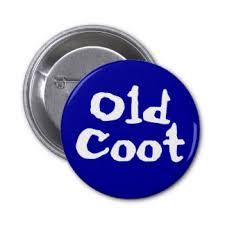I bought an apple at a national chain grocery store the other day. Of course, it had a sticker on it. All the apples do, most of the other fruit does as well: oranges, pears, watermelons, tomatoes (yes, they are a fruit). Even onions have stickers.
Here’s where I venture into all too familiar territory for me – shooting off my mouth about something I know nothing about. I find it much easier than digging out the facts. Made up ones are more exciting. So, I’ll start my rant with, “I assume,” to save myself from a lawsuit.
“I assume,” – the apple had a sticker on it so the clerk could ring up the correct price. (Remember when cash registers actually “rang,” when clerks finished entering a series of items and then turned a crank to “ring” up the total?) Different types of apples have different prices, ranging from $1.99 per pound to $2.29 per pound. I remember when you bought them one at a time and paid 10 cents; we always pawed through the pile to find the biggest one. Now it doesn’t matter; you pay by the weight.
If you went to a store back in the days of my youth, and well beyond, you didn’t find stickers glued to the skin of an apple (and accidentally swallowed every once in a while). Those clerks in the mom and pop neighborhood stores knew their apples; they could tell the difference between a McIntosh and a Northern Delicious. I think most of the today’s clerks can too, but the financial guys at the top of the corporate ladder (this is where my lack of actual facts kicks in) don’t think that people at that level are smart enough to distinguish a Mac from a Delicious, or an orange from a tangerine. Besides, that financial mindset wants to know exactly how many of each type are sold, on what day of the week and to whom. The “whom” comes from the store card they force us to use in order to buy things on sale.
Financial types are running most businesses these days. And, in many cases, running them into the ground, because their focus is on the short-term: this quarter’s profit and stock price. Long-term consequences, which are more important, get short shrift. Customer loyalty, employee morale, corporate contribution to society are secondary, and often ignored.
Take a look at some of the recent examples of narrowly focused corporate visionaries. EpiPens that cost less than $5.00 to produce, priced at $600 by the Mylan Drug Company. Where, coincidentally, the CEO’s mother, in her role as president of the National Association of State School Boards, spearheaded a drive to get all the school boards in the country to adopt a policy to equip schools with EpiPens. (“Thanks mom.”)
And, how about that CEO at Wells Fargo, John Stumpf, whose bank was caught with its hand in the cookie jar, stealing from customers by signing them up and charging them for services they didn’t want. He appeared at a congressional hearing saying he took full responsibility. But, (here comes another apple sticker) had no intention of returning the bonus he received as a direct result of the theft. Fortunately, the board of directors had a different opinion. Stumpf got stumped; he has to return the $41 million in unvested stock he received as a bonus.
That little sticker on an apple is symbolic; it doesn’t just stick in my throat every once in a while; it’s a constant stick in my craw.
Comments, complaints? Send to – mlessler7@gmail.com.



Be the first to comment on "The Old Coot is stuck on apples"